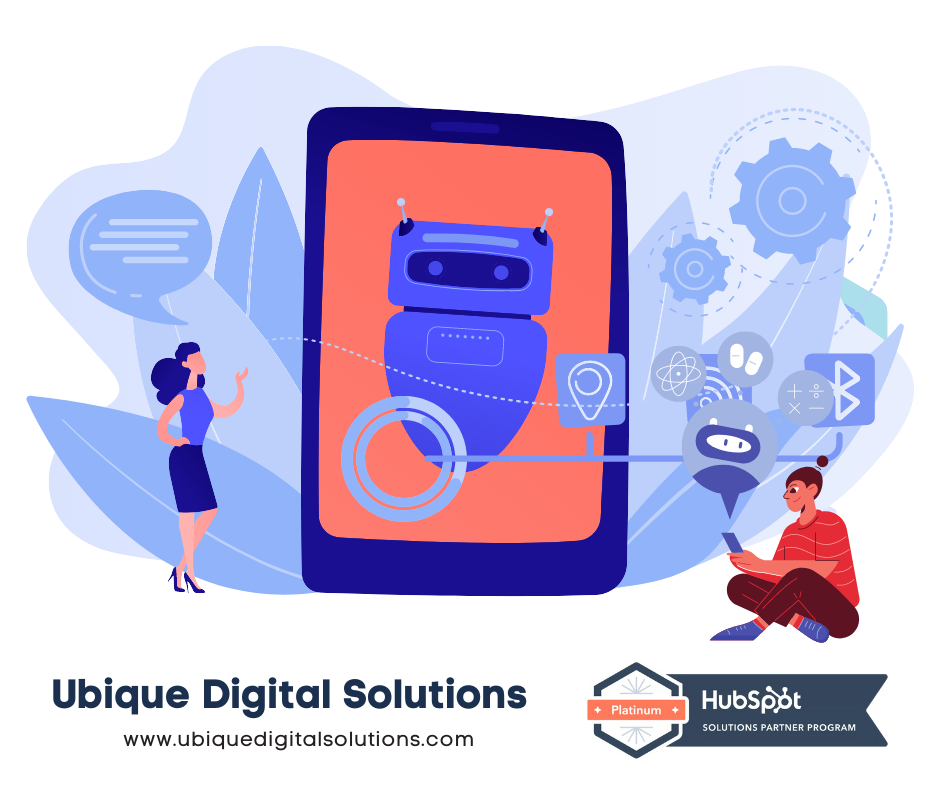What is Business Intelligence (BI)?
Business Intelligence (BI) refers to the processes, technologies, and tools that enable organizations to gather, analyze, and visualize data to make informed decisions. Traditional BI tools primarily operate on desktop or web-based platforms, limiting their accessibility and functionality in remote work scenarios. However, with the rise of mobile BI tools, organizations can leverage the power of data and analytics on mobile devices, empowering remote workers with real-time insights and enhancing collaboration regardless of location.
The Rise of Mobile BI Tools
Benefits of Mobile BI in Remote Work
- Increased accessibility and flexibility: Mobile BI allows employees to access critical data and analytics from anywhere, anytime, using their smartphones or tablets. This flexibility enables remote workers to stay connected and make informed decisions without being tied to a physical office.
- Real-time access to data and insights: Mobile BI tools provide real-time data access and visualizations, ensuring that remote workers have the most up-to-date information at their fingertips. This timely access enables faster response times and empowers employees to take immediate action, even when working remotely.
- Improved collaboration and decision-making on the go: Mobile BI facilitates collaboration among remote teams by enabling the sharing and collaborative exploration of dashboards, reports, and insights. Remote workers can discuss and align their decisions based on real-time data, fostering a data-driven approach to remote work.
Features and Functionality of Mobile BI Tools
Mobile BI tools offer specific features and functionality tailored to remote work scenarios:
- Intuitive and user-friendly interfaces: Mobile BI tools are designed with intuitive interfaces, optimized for smaller screens, and touch-based interactions. These interfaces ensure a seamless user experience and make it easy for remote workers to navigate and interact with data and visualizations.
- Responsive and interactive visualizations: Mobile BI tools provide responsive visualizations that adapt to different screen sizes and orientations. These visualizations allow remote workers to explore data and drill down into details, enabling a deeper understanding of trends and insights.
- Offline capabilities for uninterrupted access to data: Mobile BI tools often offer offline capabilities, allowing remote workers to access previously viewed data and reports even without an internet connection. This feature ensures uninterrupted productivity, regardless of connectivity issues in remote environments.
Leveraging Mobile BI Tools for Remote Work
Remote Data Access and Analysis
Mobile BI tools enable remote workers to access and analyze data securely from anywhere:
- Connecting to data sources securely from anywhere: Mobile BI tools provide secure connectivity options, allowing remote workers to access on-premises and cloud-based data sources. These connections are encrypted to ensure data privacy and security during remote data access.
- Conducting ad-hoc analysis and generating reports remotely: With mobile BI tools, remote workers can perform ad-hoc data analysis and generate reports on the go. They can explore data, apply filters, and customize visualizations to gain insights and share reports with colleagues, even when working remotely.
- Making informed decisions without physical access to office-based systems: Mobile BI tools empower remote workers to make informed decisions without relying on physical access to office-based systems. They can access key metrics, performance indicators, and dashboards on their mobile devices, enabling timely decision-making regardless of their location.
Collaborative Workflows and Remote Dashboards
Mobile BI tools facilitate collaboration among remote teams and enable them to work with remote dashboards:
- Sharing and collaborating on dashboards and reports in real-time: Mobile BI tools allow remote workers to share dashboards and reports with colleagues in real-time. This functionality enables collaborative data exploration, discussions, and decision-making, fostering a cohesive and data-driven remote work environment.
- Enabling remote teams to stay aligned and make data-driven decisions: By leveraging mobile BI tools, remote teams can align their goals, track progress, and make data-driven decisions together. Real-time access to shared dashboards and reports ensures that everyone is working with the same insights and can contribute to the decision-making process.
- Empowering remote workers with up-to-date insights and analytics: Mobile BI tools keep remote workers up to date with the latest insights and analytics. With real-time data refreshes and notifications, remote workers can stay informed about changes in data trends and make timely adjustments to their strategies.
Mobile BI for Executive Decision-Making
- Enabling executives to access key metrics and performance indicators on mobile devices: Mobile BI tools provide executives with easy access to key metrics and performance indicators on their mobile devices. They can monitor critical business metrics, track progress, and make strategic decisions from anywhere, ensuring continuous oversight and control.
- Supporting on-the-go decision-making with real-time insights: Executives can leverage mobile BI tools to make decisions on the go by accessing real-time insights and visualizations. They can monitor sales trends, operational performance, and other critical data points, enabling them to respond swiftly to business challenges and opportunities.
- Facilitating remote executive meetings and discussions with interactive dashboards: Mobile BI tools facilitate remote executive meetings and discussions by providing interactive dashboards and reports. Executives can present and discuss data with their teams, fostering collaborative decision-making, even when physically dispersed.
Ensuring Security and Data Governance
Mobile Device Security and Management
- Implementing secure authentication and encryption measures: To ensure the security of mobile BI tools, organizations should implement strong authentication mechanisms, such as multi-factor authentication, to prevent unauthorized access. Additionally, data transmitted between mobile devices and BI platforms should be encrypted to protect sensitive information.
- Enforcing device-level security policies and remote data wiping: Organizations should enforce device-level security policies, such as passcodes and biometric authentication, to secure mobile devices used for accessing BI tools. In case of loss or theft, remote data wiping capabilities should be in place to protect data from unauthorized access.
- Managing user access and permissions for sensitive data: Organizations need to implement robust user access controls and permissions for mobile BI tools. This ensures that only authorized individuals can access sensitive data and that data governance policies are followed even in remote work scenarios.
Data Governance and Compliance in Remote BI
Ensuring data integrity and regulatory compliance in remote BI scenarios:
- Organizations must establish data governance frameworks and processes to ensure data integrity and compliance with regulatory requirements in remote BI scenarios. This includes defining data ownership, implementing data quality checks, and adhering to privacy regulations.
- Implementing data governance practices for remote data access and analysis: Remote access to data should be governed by policies and procedures that outline the appropriate use and handling of data. Data classification, access controls, and audit trails should be in place to maintain data integrity and security.
- Addressing privacy concerns and protecting sensitive information: Organizations should implement measures to address privacy concerns and protect sensitive information when using mobile BI tools. This includes anonymizing and encrypting data, as well as educating remote workers on privacy best practices to ensure responsible data handling.
Overcoming Challenges and Best Practices
Data Connectivity and Integration
- Establishing secure connections to on-premises and cloud data sources: Organizations must ensure secure connections between mobile BI tools and on-premises or cloud data sources. This involves implementing secure protocols, such as SSL/TLS, and using secure authentication mechanisms to protect data during transmission.
- Implementing data integration strategies for remote data consolidation: Remote work often involves working with data from various sources. Implementing data integration strategies, such as data pipelines or ETL processes, allows organizations to consolidate data from multiple sources and make it accessible through mobile BI tools.
- Overcoming challenges in data synchronization and latency: Organizations need to address challenges related to data synchronization and latency when using mobile BI tools. This may involve optimizing data refresh intervals, implementing caching mechanisms, or leveraging cloud-based data storage and processing to minimize latency.
User Adoption and Training
- Driving user adoption of mobile BI tools in remote work environments: To ensure successful adoption, organizations should communicate the benefits of mobile BI tools to remote workers and emphasize their value in enabling data-driven decision-making. Promoting the ease of use, accessibility, and enhanced productivity that mobile BI offers can encourage adoption.
- Providing comprehensive training and resources for remote workers: Organizations should provide remote workers with comprehensive training on how to effectively use mobile BI tools. This includes familiarizing them with the tool’s features, navigation, and best practices for data analysis. Additionally, providing documentation and access to support resources can further enhance user proficiency.
- Promoting a data-driven culture and encouraging self-service analytics: Organizations should foster a data-driven culture that values the use of mobile BI tools for decision-making. Encouraging self-service analytics empowers remote workers to explore data independently, ask meaningful questions, and find insights that drive business success.
Performance and Scalability Considerations
- Optimizing mobile BI tools for performance and scalability in remote work scenarios: To ensure optimal performance, organizations should optimize mobile BI tools for remote work scenarios. This includes optimizing queries, data compression techniques, and leveraging caching mechanisms to reduce the amount of data transferred over networks.
- Leveraging cloud-based solutions for enhanced scalability and accessibility: Cloud-based BI solutions can provide scalability and accessibility advantages for remote work environments. By leveraging cloud infrastructure, organizations can ensure that mobile BI tools can handle increased workloads and provide a seamless user experience, regardless of location.
- Monitoring and optimizing network bandwidth and data transfer speeds: Organizations should monitor network bandwidth and data transfer speeds to ensure that mobile BI tools perform optimally in remote work scenarios. Optimizing network configurations, implementing data compression techniques, and leveraging content delivery networks (CDNs) can help improve data transfer speeds and overall performance.
Conclusion
Mobile BI tools have revolutionized remote work by enabling remote workers to access critical data, collaborate effectively, and make data-driven decisions from anywhere. The benefits of increased accessibility, real-time data access, improved collaboration, and executive decision-making empower organizations to thrive in a remote work environment. However, ensuring security, data governance, overcoming challenges, and adopting best practices are crucial for maximizing the potential of mobile BI in remote work scenarios. By embracing mobile BI tools and implementing the necessary measures, organizations can leverage data and analytics to drive success in remote work settings.
To ensure a successful integration of mobile BI tools into your remote work strategy, partnering with a reliable and innovative technology provider is key. Ubique Digital Solutions specializes in digital solutions and software implementation tailored to the specific needs of businesses. With their expertise, they can help you navigate the complexities of remote work and leverage the power of data to drive your business to success. Contact Ubique Digital Solutions today to get started.
FAQs
Q: What is mobile Business Intelligence (BI)?
Mobile Business Intelligence (BI) refers to the use of BI tools and technologies on mobile devices, such as smartphones and tablets, to access, analyze, and visualize data for informed decision-making on the go.
Q: How does mobile BI benefit remote work?
Mobile BI provides increased accessibility to critical data, real-time access to insights, and improved collaboration among remote teams. It enables remote workers to make informed decisions, share dashboards and reports, and collaborate regardless of their location.
Q: What features should I look for in mobile BI tools for remote work?
Key features to consider in mobile BI tools for remote work include intuitive and user-friendly interfaces, responsive and interactive visualizations, and offline capabilities for uninterrupted access to data.
Q: How can mobile BI tools enhance remote data access and analysis?
Mobile BI tools allow remote workers to securely connect to data sources, conduct ad-hoc analysis, and generate reports remotely. They enable informed decision-making without physical access to office-based systems.
Q: What security measures should be in place for mobile BI in remote work environments?
Security measures for mobile BI in remote work environments include implementing secure authentication and encryption, enforcing device-level security policies, and managing user access and permissions for sensitive data. Data governance practices and privacy protection are also essential.
















